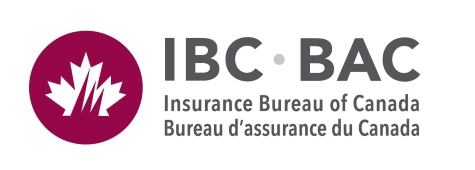Tips for a safe and secure Victoria Day weekend
EDMONTON, May 12, 2014 /CNW/ - For many people, the upcoming Victoria Day weekend marks the end of a harsh winter and the 'unofficial start' of the summer season. Traffic will be heavy as thousands of Manitobans take to the roads to head to their cottage or vacation property to get ready for the season.
Although people may be in a hurry to get away, Insurance Bureau of Canada advises that before heading out, it's important to first ensure that their cottage or vacation property is properly insured and that the insurance is up to date. "Many people may not realize that insurance for their vacation properties works a bit differently than insurance for their primary residence," says Bill Adams, Vice-President, Western and Pacific, IBC.
Mr. Adams explains that how a vacation property is used and how often it is occupied will dictate which insurance packages are most appropriate. For example, how much time is spent there? Is it used year-round or rented out at some point during the year? "The answers to these questions are important when people are considering what type of coverage to buy for their vacation property," he adds.
Because many cottages and vacation homes are used only seasonally, coverage is usually more limited. Vacation property insurance is almost always provided as a named perils policy instead of a comprehensive policy.
- A comprehensive type of policy covers both the building and its contents for all risks (except for those specifically included).
- A Named Perils type of policy provides coverage only for the specific perils stated in a person's policy. Typical perils include fire, explosion and smoke damage.
- You can include your vacation property on your home insurance as a "secondary" or "seasonal" location, or you can insure it separately.
- Because of the part-time occupancy, coverage for certain risks, such as water damage or vandalism, may be more difficult or expensive to arrange. For example, if a water pipe bursts in your vacation home while it is unoccupied, the damage is likely to be more severe because no one will be there to take action.
- Some risks are not covered in insurance policies for secondary homes. These include sewer backup and damage to, or loss of, food in a freezer, garden equipment, outdoor plants, trees and shrubs.
- For further information, talk to your insurance representative plus visit: http://www.ibc.ca/en/home_insurance/vacation_property.asp /
http://www.ibc.ca/en/Home_Insurance/documents/brochures/Insuring_Your_Cottage_EN.pdf
Once on the road, IBC is also urging motorists to drive with extra caution because of the higher volumes of traffic and increased risk. "It's important to put safety first and to drive defensively, not only this weekend, but all year round," says Mr. Adams.
IBC suggests the following tips to help people stay safe, focused and in control on the roads:
- Have your vehicle checked to make sure that everything is working properly. Repair or replace worn parts, check fluid levels and tire pressure. Make sure all lights work, including signals.
- Never drink and drive. Not only is impaired driving a serious danger to public safety, it's against the law. Drinking and driving fatalities represent close to 1/4 of all fatalities annually.
- Distracted driving isn't worth dying for and so we urge motorists to avoid talking or texting on a hand-held phone. According to current collision trends, fatalities from distracted driving are forecast to exceed those from drinking and driving by 2016.
- Never drive while drowsy because if you are overtired, you are impaired. Driver fatigue is a serious threat to road safety because it affects our ability to drive by slowing reaction time, decreasing awareness and impairing judgement. If you feel tired, pull off to the side of the road to a safe spot and have a nap.
About Insurance Bureau of Canada
Insurance Bureau of Canada (IBC) is pleased to celebrate 50 years as a valuable resource for insurance information. Since 1964, IBC has been working with governments across Canada to make our communities safer, championing issues that directly affect Canadians and the property and casualty (P&C) insurance industry. IBC is the national industry association representing Canada's private home, car and business insurers. Its member companies represent 90% of the P&C insurance market in Canada. The P&C insurance industry employs over 118,600 Canadians, pays more than $7 billion in taxes and levies to the federal, provincial and municipal governments, and has a total premium base of $46 billion.
To view media releases and information, visit the media section of IBC's website at www.ibc.ca.
SOURCE: Insurance Bureau of Canada

Steve Kee, Director, Media & Digital Communications, Insurance Bureau of Canada, 416-362-2031 X-4387, [email protected]; Ellen Woodger, Communications Consultant, Insurance Bureau of Canada, 416-483-2358, [email protected]

Share this article